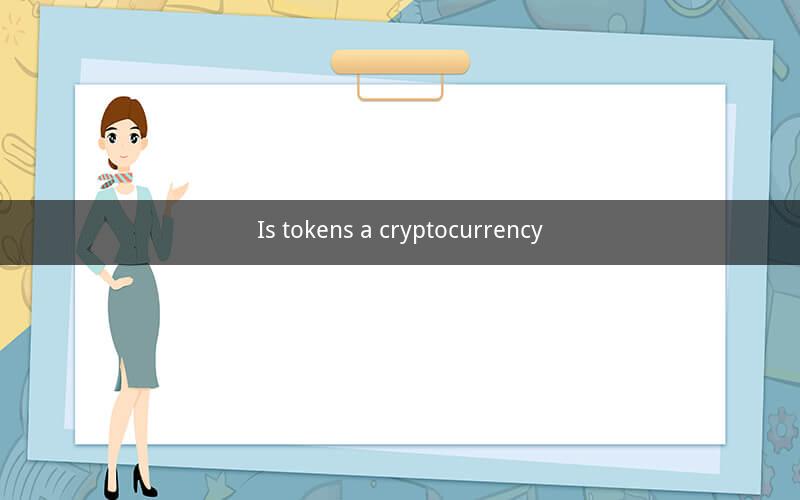
Is Tokens a Cryptocurrency?
Table of Contents
1. Understanding Cryptocurrency
2. Introduction to Tokens
3. The Distinction Between Tokens and Cryptocurrencies
4. Types of Tokens
5. The Role of Tokens in the Cryptocurrency Ecosystem
6. The Token Market
7. Risks and Challenges of Investing in Tokens
8. Future of Tokens in Cryptocurrency
1. Understanding Cryptocurrency
Cryptocurrency is a digital or virtual form of currency that uses cryptography for security. It operates independently of a central bank and is typically based on a blockchain technology. The most well-known cryptocurrency is Bitcoin, which was created in 2009. Cryptocurrency has gained popularity due to its decentralized nature, which allows for secure and transparent transactions.
2. Introduction to Tokens
A token is a digital asset that represents a unit of value on a blockchain platform. Unlike cryptocurrencies, tokens are often used to represent ownership, access rights, or participation in a specific network or project. Tokens can be created on various blockchain platforms, such as Ethereum, Binance Smart Chain, and Tezos.
3. The Distinction Between Tokens and Cryptocurrencies
While both tokens and cryptocurrencies are digital assets, there are key differences between them:
- Cryptocurrencies are standalone digital currencies, such as Bitcoin and Ethereum.
- Tokens are digital assets that are built on top of existing blockchain platforms and can represent various forms of value, such as utility, equity, or debt.
4. Types of Tokens
There are several types of tokens, each serving a different purpose:
- Utility Tokens: These tokens provide access to a product or service on a blockchain platform. They are often used in decentralized applications (dApps) and can be exchanged for goods or services.
- Security Tokens: These tokens represent ownership or investment in a company or project. They are regulated as securities and must comply with applicable laws and regulations.
- Equity Tokens: These tokens represent ownership in a company and provide investors with voting rights and potential dividends.
- Debt Tokens: These tokens represent a debt owed by an issuer to a holder, similar to traditional bonds.
5. The Role of Tokens in the Cryptocurrency Ecosystem
Tokens play a crucial role in the cryptocurrency ecosystem by:
- Facilitating transactions: Tokens enable users to exchange value securely and transparently.
- Encouraging participation: Tokens can incentivize users to contribute to a network or project by rewarding them with additional tokens.
- Funding projects: Tokens can be used to raise capital for blockchain projects, allowing developers to build and scale their initiatives.
6. The Token Market
The token market has experienced significant growth in recent years, with thousands of tokens available for investment. This market is characterized by:
- High volatility: Token prices can fluctuate rapidly, making it challenging for investors to predict market trends.
- High competition: There are numerous tokens available, making it difficult for new tokens to gain traction.
- Regulatory challenges: Tokens are subject to varying regulations around the world, which can impact their adoption and use.
7. Risks and Challenges of Investing in Tokens
Investing in tokens carries several risks and challenges, including:
- Market volatility: Token prices can be highly volatile, leading to significant gains or losses.
- Security concerns: Tokens are stored in digital wallets, which can be vulnerable to hacking and theft.
- Regulatory uncertainty: The regulatory landscape for tokens is still evolving, which can impact their legality and use.
8. Future of Tokens in Cryptocurrency
The future of tokens in the cryptocurrency ecosystem is promising. As blockchain technology continues to advance, tokens are expected to play an increasingly significant role in various industries, including finance, real estate, and entertainment. Some potential developments include:
- Increased adoption: Tokens are expected to become more widely adopted as blockchain technology becomes more accessible.
- Enhanced security: Advances in blockchain technology will likely lead to improved security for tokens.
- Regulatory clarity: Governments are increasingly recognizing the potential of tokens and are working to establish clear regulations to support their growth.
Frequently Asked Questions
1. What is the difference between a cryptocurrency and a token?
- Cryptocurrencies are standalone digital currencies, while tokens are built on top of existing blockchain platforms and can represent various forms of value.
2. How do utility tokens work?
- Utility tokens provide access to a product or service on a blockchain platform, often used in decentralized applications.
3. What are security tokens?
- Security tokens represent ownership or investment in a company or project and are regulated as securities.
4. Are tokens more volatile than cryptocurrencies?
- Tokens can be more volatile than cryptocurrencies due to their specific use cases and market dynamics.
5. What are the risks of investing in tokens?
- Risks include market volatility, security concerns, and regulatory uncertainty.
6. How can I store my tokens securely?
- You can store tokens in digital wallets, which can range from mobile wallets to hardware wallets with enhanced security features.
7. What is the future of token regulation?
- The future of token regulation is uncertain, but governments are increasingly recognizing the potential of tokens and working to establish clear regulations.
8. Can tokens replace traditional financial instruments?
- Tokens have the potential to replace certain traditional financial instruments, but this is dependent on regulatory and technological advancements.
9. How do tokens contribute to the growth of blockchain technology?
- Tokens incentivize participation, funding, and innovation in blockchain projects, contributing to the growth of the ecosystem.
10. Are all tokens created equal?
- No, tokens vary in their use cases, security features, and regulatory status, making them distinct from one another.